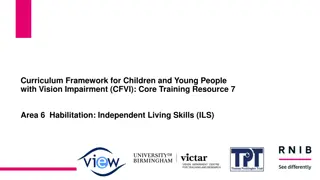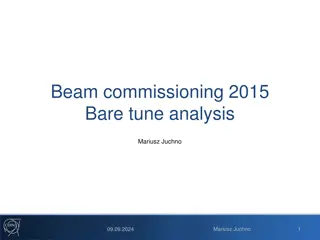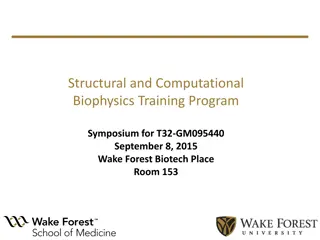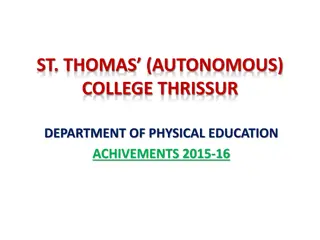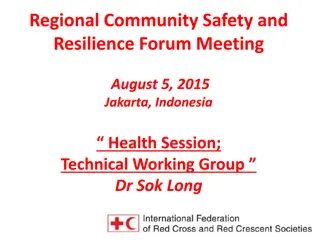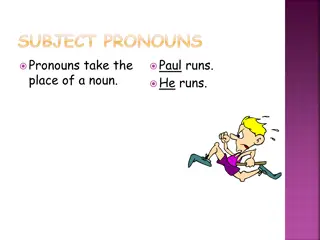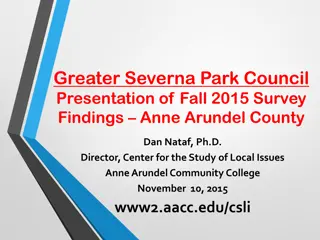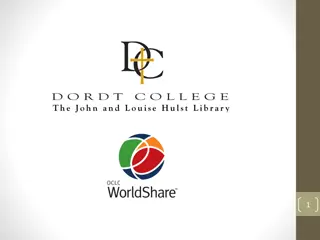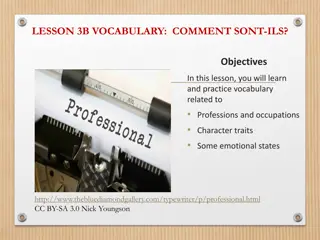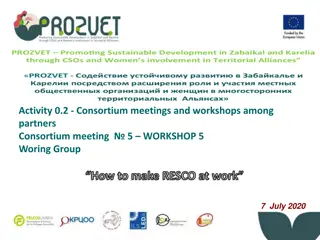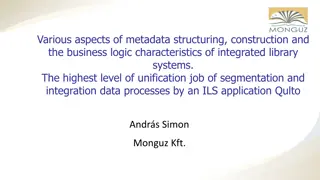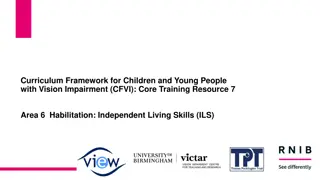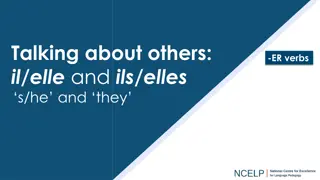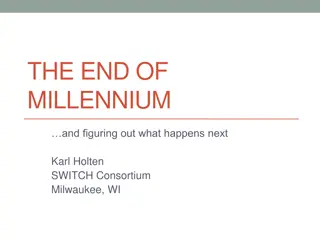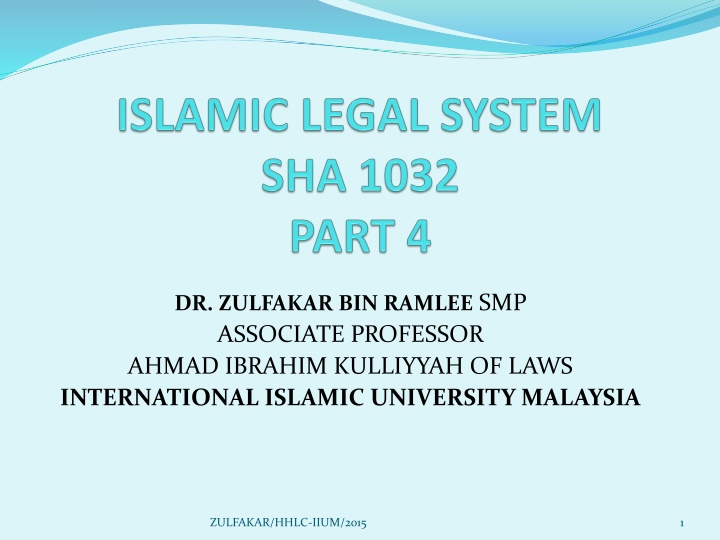
Jurisdiction of Shariah Courts vs Civil Courts in Malaysia
Explore the jurisdictional differences between Shariah courts and civil courts in Malaysia, including cases, interpretations, and legal precedents. Understand the implications of the Federal Constitution and Acts of Parliament on court jurisdiction, with insights from Prof. Zulfakar Bin Ramlee SMP, Associate Professor at Ahmad Ibrahim Kulliyyah of Laws, International Islamic University Malaysia.
Download Presentation

Please find below an Image/Link to download the presentation.
The content on the website is provided AS IS for your information and personal use only. It may not be sold, licensed, or shared on other websites without obtaining consent from the author. If you encounter any issues during the download, it is possible that the publisher has removed the file from their server.
You are allowed to download the files provided on this website for personal or commercial use, subject to the condition that they are used lawfully. All files are the property of their respective owners.
The content on the website is provided AS IS for your information and personal use only. It may not be sold, licensed, or shared on other websites without obtaining consent from the author.
E N D
Presentation Transcript
DR. ZULFAKAR BIN RAMLEE SMP ASSOCIATE PROFESSOR AHMAD IBRAHIM KULLIYYAH OF LAWS INTERNATIONAL ISLAMIC UNIVERSITY MALAYSIA ZULFAKAR/HHLC-IIUM/2015 1
Shariah courts vs Civil courts ZULFAKAR/HHLC-IIUM/2015 2
before amendment to ARTICLE 121(1)(A) ZULFAKAR/HHLC-IIUM/2015 3
Cases prior to 1988 Amendment Ainan bin Mahmud v. Syed Abu Bakar (legitimacy of a child vs S. 112) Nafsiah v. Abdul Majid [1969] breach of promise to marry Myriam v. Mohamed Ariff [1971](guardianship Act is general application) ZULFAKAR/HHLC-IIUM/2015 4
The courts referred to in clause (1) shall have no jurisdiction in respect of any matter within the jurisdiction of the Syariah courts. ZULFAKAR/HHLC-IIUM/2015 5
MAIPP V. Shaikh Zolkaffilly (2003) 3 MLJ 705 Subject matter is wakaf-land. H/Ct and CA used remedy approach-injunction Adopted decision made by AK Sulaiman in Md. Hakim Lee s case. FC Held: The fact that the P may not have his remedy in Syariah Ct would not make the jurisdiction exercisable by the civil court. ZULFAKAR/HHLC-IIUM/2015 6
FC Held: on the issue of her right to apostate and her current status ie. a muslim or not, the matter falls under the jurisdiction of the Syariah Court. Note: FC used subject-matter approach ZULFAKAR/HHLC-IIUM/2015 7
Hibah (gift) vs Probate (will) LATIFAH MAT ZIN V. ROSMAWATI SHARIBUN & ANOR [2007] 5 CLJ 253 FC held: (1) Both the civil and syariah courts are creatures of statutes and owe their existence to statutes, namely the Federal Constitution, the Acts of Parliament and the State Enactments as the case may be. So it is to the relevant statutes that they should look to, to determine whether they have jurisdiction or not. However, just because the other court does not have jurisdiction over a matter does not mean that it has jurisdiction over it. ZULFAKAR/HHLC-IIUM/2015 8
Held: Thus, if one of the parties is a non-Muslim, the syariah court does not have jurisdiction over the case, even if the subject matter falls within its jurisdiction . Likewise, just because one of the parties is a non-Muslim does not mean that the civil court has jurisdiction over the case if the subject matter is not within its jurisdiction . Consequently, there may be cases over which neither court has jurisdiction and in which some of the issues fall within the jurisdiction of the civil court while the rest fall within the jurisdiction of the syariah court. (paras 45, 46 & 48) ZULFAKAR/HHLC-IIUM/2015 9
Held: (5) In the circumstances, this court is inclined to answer the question that touches the crux of the case which disposes of the appeal in its own way as follows: where a question arises as to whether a specific property forms part of the assets of an estate of a deceased person who is Muslim in a petition for a Letter of Administration in the civil High Court, the answer to which depends on whether there was a gift inter vivos or not, that question shall be determined in accordance with the Islamic law of gift inter vivos or hibah. The determination of that issue and the beneficiary or beneficiaries entitled to it and in what proportion, if relevant, is within the jurisdiction of the syariah court and the civil court shall give effect to it in the grant of a Letter of Administration, and subsequently, in distributing the estate. ZULFAKAR/HHLC-IIUM/2015 10
Can SC nullifies the civil marriage? Can SC hears the custody claim? Can Civil Court hears the claim on maintenance etc. See AILM at p. 240-282 ZULFAKAR/HHLC-IIUM/2015 11
Brief fact: The parties were originally Hindus husband and wife; they were married pursuant to a civil ceremony of marriage that was registered on 26 July 2001 pursuant to the Law Reform (Marriage and Divorce) Act 1976 (the 1976 Act). There were two children of the marriage, both boys: Dharvin Joshua aged 4 and Sharvin aged 2. The husband converted himself and the elder son to Islam on 18 May 2006. Later, the wife received a notice dated 14 July 2006 from the Registrar of the Syariah High Court Kuala Lumpur informing her that her husband had commenced proceedings in the Syariah High Court for the dissolution of the marriage and custody of the elder son. He filed the application in the Syariah High Court on 23 May 2006. An interim custody order in respect of the converted son was issued to the husband by the Syariah High Court. On 4 August 2006, which was 2 months and 18 days after the husband's conversion and knowing that the husband had taken proceedings in the Syariah High Court, the wife filed a petition for the dissolution of the marriage pursuant to s. 51 of the 1976 Act coupled with an application for custody and ancillary reliefs in the High Court. The wife did not object to the husband's conversion to Islam. ZULFAKAR/HHLC-IIUM/2015 12
1) if one of the parties is non-Muslim? As in the cases of: G.Rethinasamy v MAIPP (1993) 2 MLJ 166 See AILM at p. 231-237 ZULFAKAR/HHLC-IIUM/2015 13
As in the case of: Sukma Darmawan v. Ketua Pengarah Penjara Malaysia (1999) 3 CLJ 266. ZULFAKAR/HHLC-IIUM/2015 14
ISSUES ON HUDUD: Islamic Criminal Law QISAS & HUDUD TA ZIR DIYAT ZULFAKAR/HHLC-IIUM/2015 15
Hudud Offences: Drinking Wine (syurb al-Khamar) Adultery (zina) False Accusation (qadhaf) Theft (sariqah) Armed Robbery Apostasy (murtad) ZULFAKAR/HHLC-IIUM/2015 16
qisas (retaliation) 1. crimes against life. a life for a life But can be substituted by diyat (bloodmoney) Or pardon by the victim family. 2. Crimes against body. an eye for an eye Eg. Injury, wound etc. Either retaliation or compensation. ZULFAKAR/HHLC-IIUM/2015 17
Tazir (discretionary punishment) 1. other than hudud & qisas 2. if hudud punishment cannot be carried out Types: Ranging from admonition(remind) to death penalty. Eg. reprimand, fine, imprisonment, flogging ZULFAKAR/HHLC-IIUM/2015 18
Philosophy of Punishment 1. Vengeance (revenge)/ retribution 2. Retaliation (qisas) 3. Compensation (diyat) 4. Deterrence / prevention 5. Rehabilitation Note: before punishment to be executed: 1. as a last resort 2. fulfill all conditions ZULFAKAR/HHLC-IIUM/2015 19
Hudud: special features 1. Must be proved at the degree of certainty ie. 100% 2. If there is slight doubt, hudud punishment will not be implemented. 3. To acquit guilty person is better than to punish innocent person. 4. Free from all negating factors ZULFAKAR/HHLC-IIUM/2015 20
Hudud and Non-Muslims? 3 stages: Ideally, Yes except on matters fall under personal matters eg. Drinking wine, fornication (adultery). 2.Reality: our laws, limitation by laws. 1. 3. Agreeably: Should only apply to Muslims. ZULFAKAR/HHLC-IIUM/2015 21

